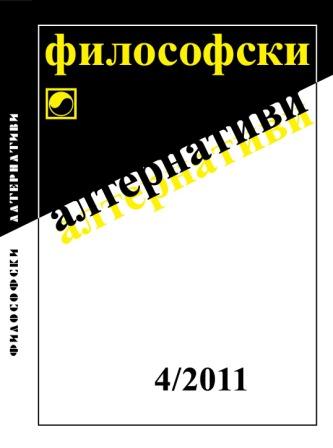Теоремата на Мартин Льоб във философска интерпретация
Löb’s Theorem Philosophically Interpreted
Author(s): Vassil PenchevSubject(s): Philosophy
Published by: Институт по философия и социология при БАН
Keywords: Martin Löb; Kurt Gödel; John von Neumann; Henkin’s proposition; Gödel number; first incompleteness theorem; self-reference; undecidabilty; Ramsey’s (redundant) concept of truth; logic of quantum mechanics and information; Kochen – Specker theorem;
Summary/Abstract: A necessary and sufficient condition that a given proposition to be provable in such a theory that allows to be assigned to the proposition a Gödel number for containing Peano arithmetic is that Gödel number itself. This is the sense of Martin Löb’s theorem (1955). Now we can put several philosophical questions. Whether is the Gödel number of a propositional formula necessarily finite? What would the Gödel number of a theorem itself containing Peano arithmetic be? That is the case of the so-called first incompleteness theorem (Gödel 1931). What would the Gödel number of a self-referential statement be? What would the Gödel number of such a proposition be: its Peano arithmetic expression after coding contains itself as an operand? What is the Gödel number of Gödel’s proposition [R(q); q] that states its proper unprovability? It is the key statement for his proving of the first incompleteness theorem. Whether does Peano arithmetic figure in it (or in the ones similar to it) as a single symbol, by which however actual infinity would be introduced, or as a constructively infinite set of primary signs? In fact, in that last case the Gödel number of the first incompleteness theorem should be infinite...
Journal: Философски алтернативи
- Issue Year: XX/2011
- Issue No: 4
- Page Range: 142-152
- Page Count: 11
- Language: Bulgarian
- Content File-PDF

